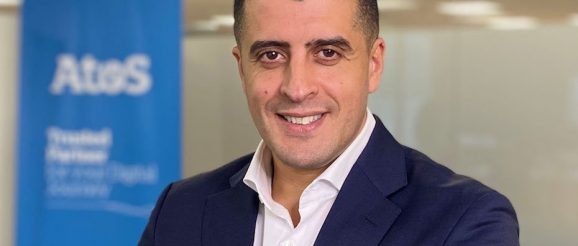Insights: Data modernisation for business innovation

Digital technologies and data are shaping the world we live in, and the Middle East has long understood the strategic value of both. In the region, customers desire quick, simple, seamless mobile and online services. Moreover, the constant wave of emerging technologies – from automation and artificial intelligence to cloud-enabled new business models with a strong data economy – is now emerging.
Keeping up with the competition in this new world will require organisations to modernise their old IT infrastructures and legacy systems. As the Middle East continues to strengthen its digital infrastructure and accelerate innovation, players like Atos are committed to providing continued high levels of service to their customers while also preparing for the future.
“Like every service organisation, we base success on our ability to stay close to customers’ needs,” says the newly appointed CEO Nourdine Bihmane. “We will provide the continuity of Atos’ existing business lines, with the additional benefits of a sharper focus on our technological strengths and markets, offering more agility to serve our customers better.”
Accelerating digital transformation
Fuelled by the Covid-19 pandemic, most companies in the region – across multiple industries – have either already adopted digital transformation strategies or are embarking on them. And the shift to the cloud is a crucial component of that process. Bihmane believes that organisations recognise how cloud gives them the agility, cost-efficiency and flexibility they need to leverage data, reduce costs, accelerate decarbonisation, or facilitate remote work at scale. “They have a choice between three types of cloud: private, public and hybrid. The challenge is getting the best value from the cloud while retaining sovereignty and flexibility. With the cloud market maturing, many are investing in the hybrid cloud as the best option,” he explains.
However, many businesses find the cloud migration process to be extremely intimidating, particularly in light of the growing regulatory obligations as well as technological and security concerns. “Atos’ strategy, rather than a binary vision of digital sovereignty, has been to create a range of risk controls to support industries and governments deploying hybrid and multi-cloud strategies regarding data segregation, infrastructure, applications, security and operations. This enables organisations to fully secure and manage their data in the edge-to-cloud continuum, in line with the highest jurisdictional requirements,” comments Bihmane.
The emerging cyberthreats you can’t ignore
Meanwhile, the new digital landscapes are expanding cyberattack surfaces with threat actors constantly evolving their tactics. Bihmane observes how the hybrid cloud requires robust cybersecurity to protect data that’s shared across public and private cloud environments at an acceptable cost. “The native security controls of cloud providers are useful, but they have limits like misconfiguration or unauthorised access. In today’s hybrid multi-cloud environments, enterprises must integrate all their security controls into one overall security posture.”
With organisations seeking a trusted, managed security partner in their fight against growing cyberthreats, Atos’ aims to continue working in partnership to secure customer data along their digi- tal journey. The global cybersecurity company that is ranked the top position worldwide in managed security service by Gartner will leverage global partnerships, local expertise and its proprietary solutions to better and more efficiently protect and govern critical data – personal data, intellectual property, financial data, and more.
The company is currently studying its separation into two publicly listed companies – Tech Foundations (Atos), as a leader in managed infrastructure services, hybrid cloud, digital work- place and technology services, and Evidian as a leader in the digital transformation, big data and cybersecurity markets. Bihmane leads Tech Foundations which includes 52,000 employees serving over 1,200 customers. “Our mission is clear – designing, building and managing world-class digital infra- structures. We will support our clients’ challenges by evolving from core infra- structure operations to engineering companies’ digital backbone. We have strategic partnerships with hyperscalers for hybrid cloud and orchestration, and we’re positioned as a leader in edge and sovereign cloud. As a result, we can deliver more immersive data-driven employee experiences and next-gen- eration collaboration; as a recognised decarbonisation leader, we can help customers reduce their carbon footprint with green IT.
“We’re trusted to manage our customers’ most complex and critical projects, with a track record in innovation. For example, we’re proud to have been the lead integrator for the International Olympic & Paralympic Committees, orchestrating, securing and transforming all their IT systems worldwide for the last 30 years. And with Paris 2024 on the horizon, a lot is coming up.”
Moving forward, Atos’ core objective is to focus on its customers and align its priorities and strategy to customers’ needs. “As we look to the future, we must maintain customer intimacy and good quality of service. We are committed to continuous delivery while readying for post-separation, focusing on our strengths, insights into customers’ challenges, and working in trusted partnerships to overcome them. With our 112,000 Atos associates, I greatly look forward to this future.”
